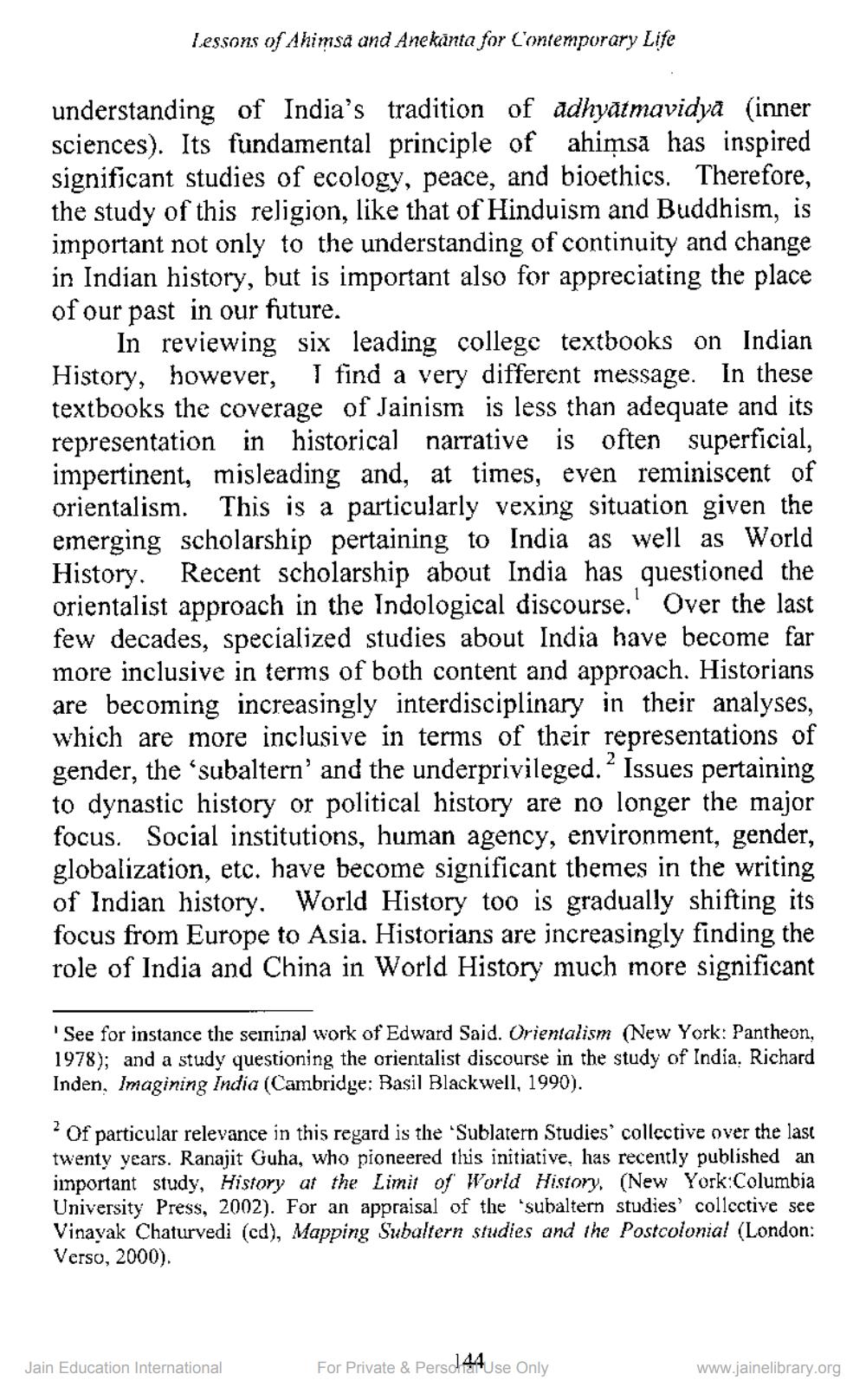Book Title: Mahaviras Teachings in Indian History Textbooks Author(s): Tara Sethia Publisher: Z_Lessons_of_Ahimsa_and_Anekanta_for_Contemporary_Life_014006.pdf View full book textPage 2
________________ Lessons of Ahimsa and Anekānta for Contemporary Life understanding of India's tradition of adhyatmavidya (inner sciences). Its fundamental principle of ahimsa has inspired significant studies of ecology, peace, and bioethics. Therefore, the study of this religion, like that of Hinduism and Buddhism, is important not only to the understanding of continuity and change in Indian history, but is important also for appreciating the place of our past in our future. In reviewing six leading college textbooks on Indian History, however, I find a very different message. In these textbooks the coverage of Jainism is less than adequate and its representation in historical narrative is often superficial, impertinent, misleading and, at times, even reminiscent of orientalism. This is particularly vexing situation given the emerging scholarship pertaining to India as well as World History. Recent scholarship about India has questioned the orientalist approach in the Indological discourse. Over the last few decades, specialized studies about India have become far more inclusive in terms of both content and approach. Historians are becoming increasingly interdisciplinary in their analyses, which are more inclusive in terms of their representations of gender, the 'subaltern' and the underprivileged.2 Issues pertaining to dynastic history or political history are no longer the major focus. Social institutions, human agency, environment, gender, globalization, etc. have become significant themes in the writing of Indian history. World History too is gradually shifting its focus from Europe to Asia. Historians are increasingly finding the role of India and China in World History much more significant 'See for instance the seminal work of Edward Said. Orientalism (New York: Pantheon, 1978); and a study questioning the orientalist discourse in the study of India, Richard Inden, Imagining India (Cambridge: Basil Blackwell, 1990). 2 Of particular relevance in this regard is the 'Sublatern Studies' collective over the last twenty years. Ranajit Guha, who pioneered this initiative, has recently published an important study, History at the Limit of World History, (New York:Columbia University Press, 2002). For an appraisal of the 'subaltern studies' collective see Vinayak Chaturvedi (cd), Mapping Subaltern studies and the Postcolonial (London: Verso, 2000). Jain Education International For Private & Perso44Use Only www.jainelibrary.orgPage Navigation
1 2 3 4 5 6 7 8 9 10 11 12 13 14 15 16 17 18 19 20
